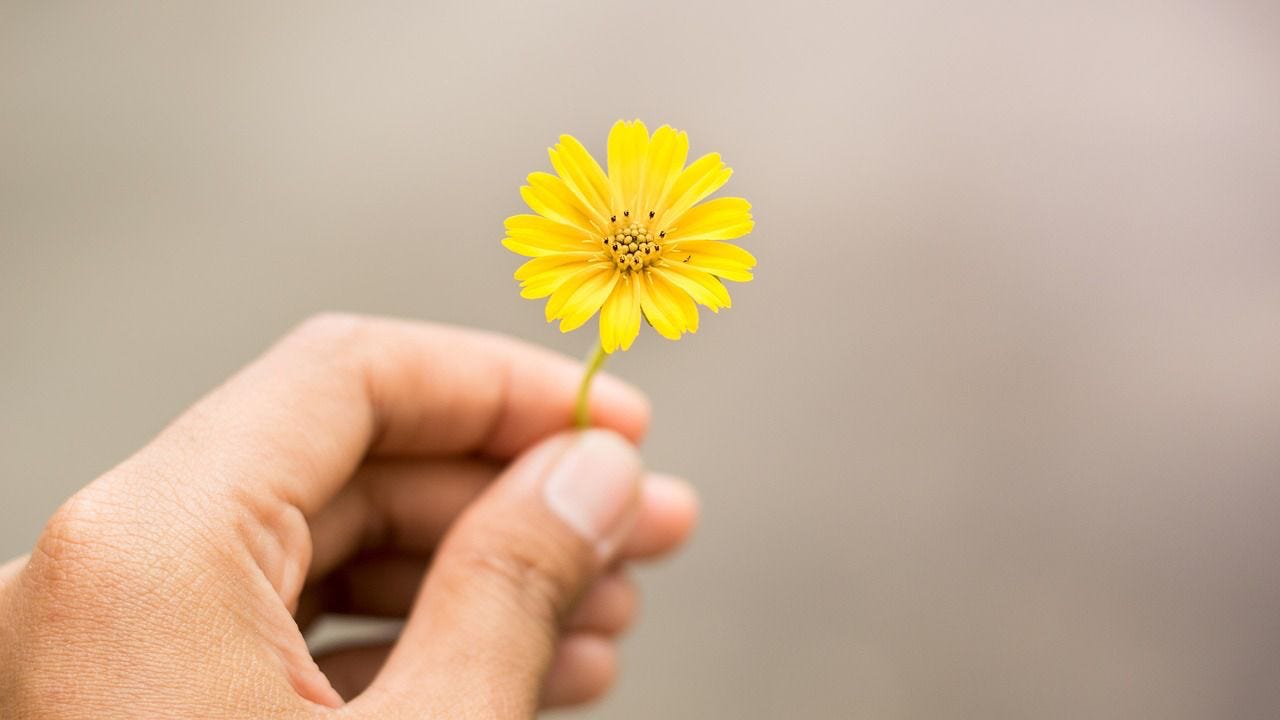Power of a Flower
During a morning walk in 1976, Srila Prabhupada paused, held up a flower, and remarked, “See the minute fibres in this flower. Can anyone manufacture this in a factory — such small fibres? And how brilliant the colour is! If you study only one flower, you become God conscious.”
I’m no botanist, but the beauty of the foliage and flowers carries a soft power, lifting your spirits. Three weeks in and the paths become familiar; the basic campus geography etched into my mind, allowing me to absorb more subtle details on my walks. Reading is much the same. Once the structure and flow settle in, you see the subtlety, nuance, and layered meanings hidden between words and lines. But I’m not just here to familiarise myself with the grounds or the textbooks; I’m eager to understand people. Wednesday is the first “Noon Service” – a gathering where different spiritual traditions open doors, inviting us into their world. This week, it’s the Unitarian Universalist Ministry, leading a service entitled “Flower Communion.” I decide to attend.
Out on the green, I am seated next to George, a Catholic from Boston Theological Seminary, pursuing a PhD in the comparative religious lives of Hindus and Christians. It’s fitting; he asks me about the Trimurti, and I ask him about the Trinity. Conversations here naturally flow to the metaphysical, needing no preface. They bloom of their own accord, like the flowers we were handed as we arrived. People’s search for understanding feels real, lived, embodied, and not merely studied. Everyone is on a journey.
George hands me a song sheet. Today, he says, is special. We’re soon invited to place the flower we were given at the start on a communal “flower wall.” We sing together, a variety of voices that balance and refine each other, after which we’re asked to return to the wall and choose a different flower – one that now calls to us. As we sit back down, sunlight pours over the gathering like a quiet blessing. The leader of the service invites us to gaze at the flower in our hand, leading us into a meditation: What drew you to this flower? Why do you find it beautiful? What details surprise you? Can you visualise its journey? What message does it carry? How does it make you feel, here and now? Does this flower elevate you in any way? To pause – letting all thoughts rest in one thing. Powerful.
We’re then asked to lift our flowers high and look around the assembly. "This," the speaker says, "is the beauty of the world we live in – so much variety, so much individuality." The world, a garden of flowers. Prabhupada’s words echo within: “If you study only one flower, you become God conscious.” I first heard that more than twenty years ago. But today – only today – did I truly pause to study a flower with care. The spiritual practices of others can awaken a forgotten discipline within our own tradition. To be intentional, present, deeply conscious, and quietly absorbed in remembrance – what the university has come to call the contemplative sciences. As a monk, I thought, I should learn that. Today I came to the “Flower Communion”, not just to learn about other traditions, but to learn from other traditions.



Please accept my humble obeisances Keshava Swami. Thank you so much for sharing your experiences at university and reminding us how to relate everything back to Krishna and to Srila Prabhpada. Reading about your Flower Communion service brought tears to my eyes. Your observations are moving.
I pray that today I can be more aware of the intricacies and beauty of the world and how all of it is Krishna Himself in everything.
Thank you so much.
Beautiful 🌻